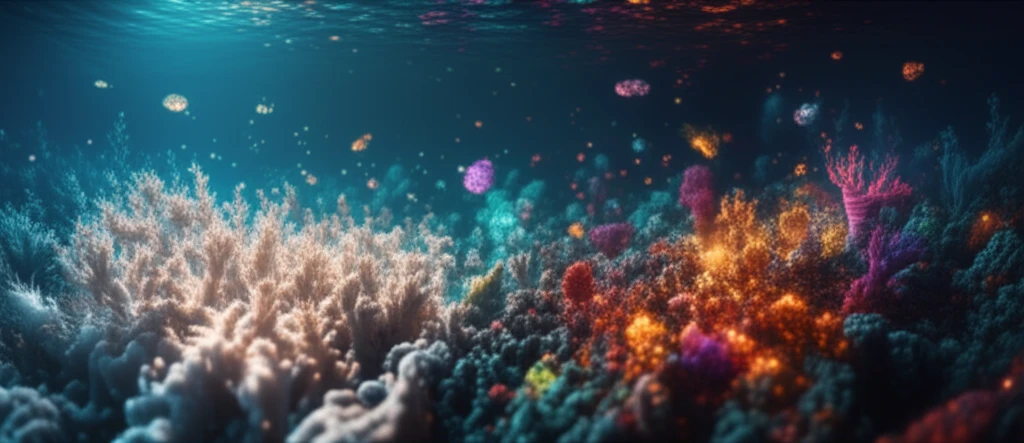
Coral's Secret Weapon: How Microbes are Revolutionizing Evolution
"A groundbreaking concept born from coral bleaching research is changing how we understand evolution and the interconnectedness of life on Earth."
Imagine a world where evolution isn't just about the survival of the fittest individual, but the success of the most cooperative team. This is the idea behind the hologenome concept, a revolutionary theory that's changing the way scientists view life and evolution. And it all started with a coral.
Every summer, rising temperatures in the Mediterranean Sea cause the stony coral Oculina patagonica to bleach, losing its colorful algae. Back in 1996, researcher Ariel Kushmaro discovered that Vibrio shiloi bacteria were the culprits behind this bleaching. For years, scientists studied this process, seeking to understand the mechanics of coral bleaching at a microbial level.
Then, something unexpected happened: the corals became resistant. The usual V. shiloi strains couldn't infect them anymore, throwing the entire model into disarray. Yet, from this apparent failure emerged a far grander idea: the hologenome concept, which suggests the key to survival lies not just within an organism's genes, but in its entire community of microbes.
What is the Hologenome Concept?

At its core, the hologenome concept proposes that an organism (the holobiont) should be viewed together with all of its associated microbes. The term "hologenome" represents the sum of all the genetic information of the host and its microbiome, including bacteria, fungi, viruses, and other microorganisms living in or on it.
The Future of Evolution is Interconnected
The hologenome concept is more than just an academic theory; it's a call to rethink our relationship with the microbial world. It encourages us to recognize the interconnectedness of life and the crucial role that microbes play in shaping our health, our planet, and the future of evolution itself. From personalized medicine to conservation efforts, understanding the hologenome promises to unlock new solutions to some of the most pressing challenges facing humanity.
